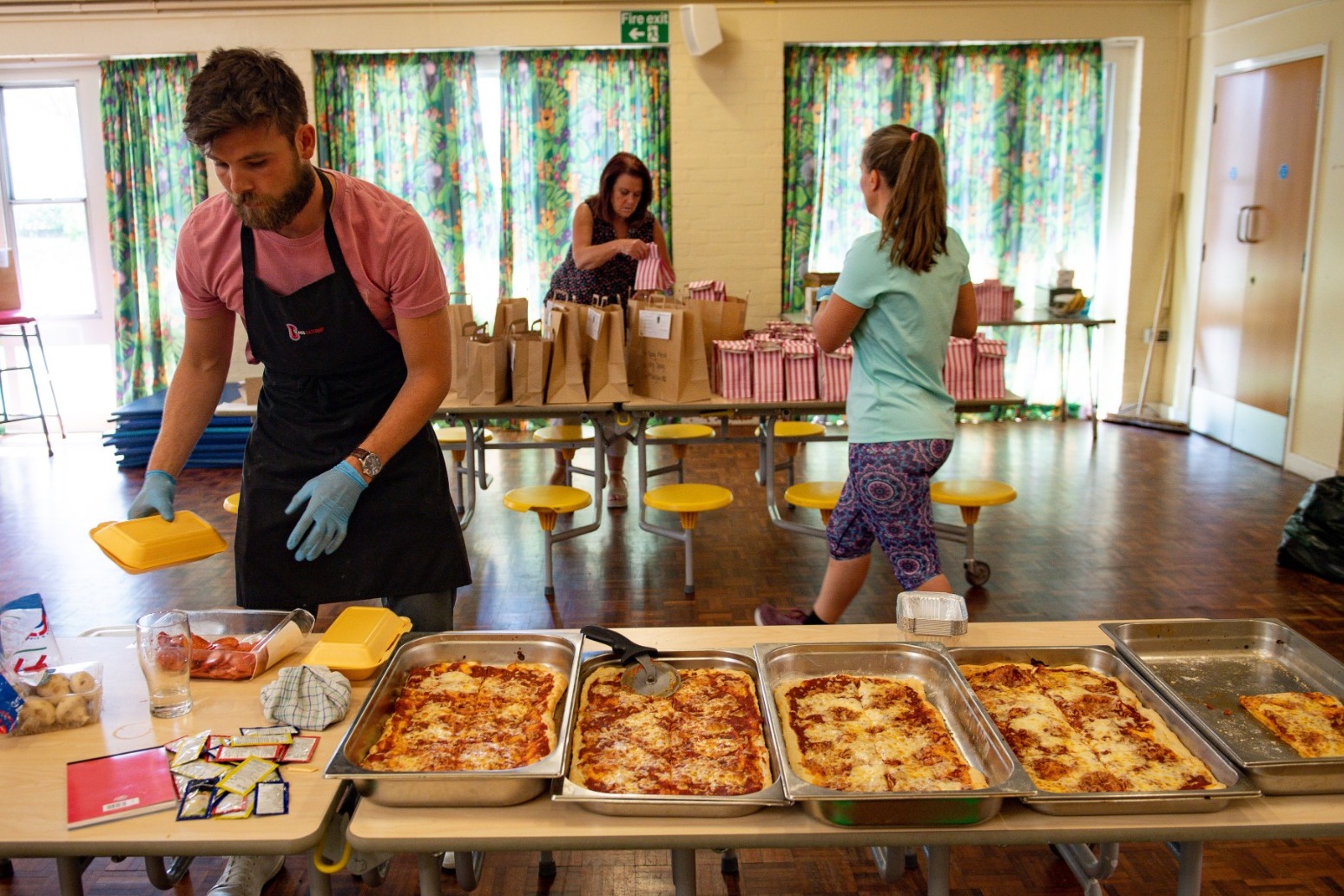
1.5m more children should be given free school meals
A further 1.5 million children should be brought into the free school meals programme, while poorer youngsters should also be fed during the school holidays, a Government-ordered review has said.
The National Food Strategy, led by Leon restaurant founder Henry Dimbleby, said urgent Government action is needed in the face of the Covid-19 pandemic, and described the country’s diet as a “slow-motion disaster”.
It warned that poorer children risk being “left behind”, adding: “One of the miserable legacies of Covid-19 is likely to be a dramatic increase in unemployment and poverty, and therefore hunger.
“The effects of hunger on young bodies (and minds) are serious and long-lasting, and exacerbate social inequalities.”
The study proposes an expansion of free school meals in England to every child where a parent is receiving Universal Credit, adding: “Children who are hungry at school struggle to concentrate, perform poorly, and have worse attendance records.”
At present, only children from households earning less than £7,400 before benefits are eligible.
Expanding the programme could reach an additional 1.5 million seven to 16-year-olds at a cost of £670 million a year.
The report also calls for an expansion of the holiday activity and food programme to all areas in England, reaching an extra 1.1 million children at a cost of £200 million a year.
And it urges an increase in the value of Healthy Start vouchers to £4.25 per week and expansion of the scheme to pregnant woman and households in receipt of Universal Credit with children under four.
The vouchers can be spent on vitamins, fruit, vegetables and milk, and the recommendation would mean an extra 290,000 pregnant women and under-fours would benefit, the study said.
Mr Dimbleby said the chief executives of Waitrose and the Co-Op have already agreed to supplement the vouchers with extra free fruit and vegetables.
He welcomed the Government’s obesity strategy, released on Monday, but said some firms need to look at their actions when it comes to creating foods that appeal to children.
The report points to “misleading packaging” and accuses the food industry of “clothing itself, and its products in false virtue”.
Mr Dimbleby attacked Marks & Spencer over its Percy Pig sweets, saying they are marketed on the front as containing all natural fruit juice and are placed “right by your kids’ little fingers”.
And yet, he said, the first four ingredients listed are forms of sugar such as fructose syrup and glucose-fructose syrup.
“I just think that is not right,” he told reporters during a press briefing.
“I think that is genuinely misleading.
“And actually, when you look at the food world, the reason I pick M&S is because they have integrity as one of their values, but it is rampant in the food world – you know, low fat (food) which is actually high in sugar, or free from this and that.
“I think CEOs do have to respond to commercial pressures but they are not innocent, bobbing about on the waters of commerce, unable to take any value-based decisions.
“I think they do need to take a look at what they’re doing. I think boards in these companies very quickly, if they were to ask these questions, could, without any need for regulation from Government, improve the system a lot.
“I think it’s time they realised that they have been putting their head in the sand for too long.”
Mr Dimbleby, who said he struggles with his own weight, said he agreed that some fruit snacks are “being clothed in a veneer of goodness and might not be better for you than a Mars bar”.
And he said there is “potential” to use “taxes to change the formulation of food”.
But he said he does not agree with plain packaging for sweets, saying most people he has talked to feel that is too much in the way of Government intervention.
Published: by Radio NewsHub